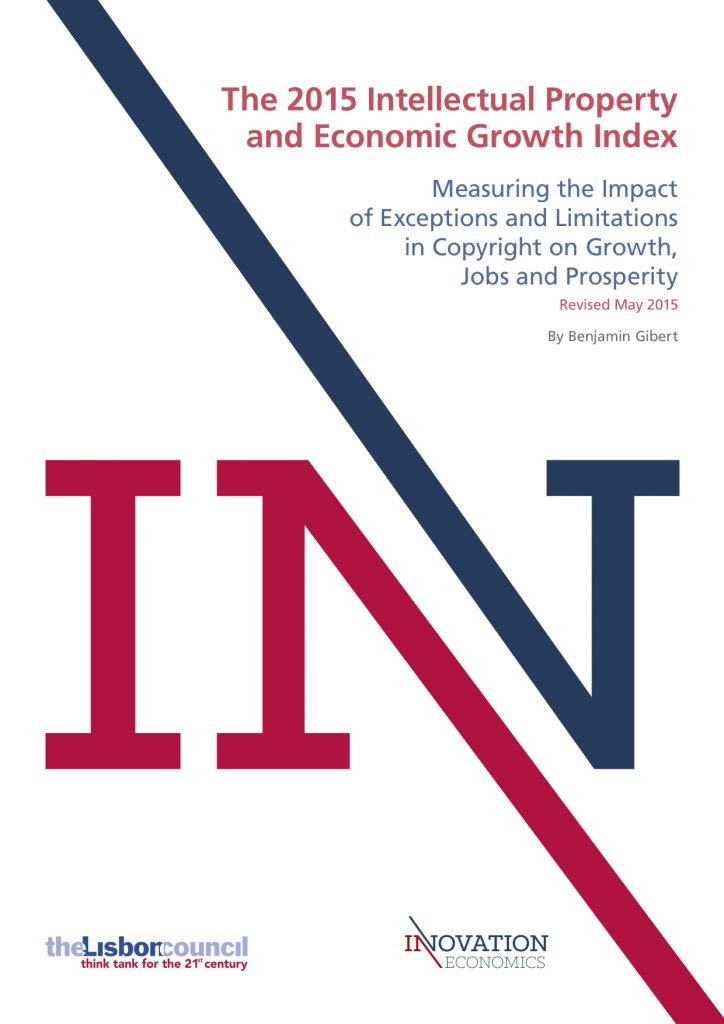
The Lisbon Council launches The 2015 Intellectual Property and Economic Growth Index: Measuring the Impact of Exceptions and Limitations in Copyright on Growth, Jobs and Prosperity. The product of a year-long research project, the Index examines the relationship between economic growth and intellectual property regimes in some of the world’s most innovative economies. Written by Benjamin Gibert, non-resident fellow at the Lisbon Council, the report builds a system for measuring the impact of exceptions to copyright on economic growth and finds that countries that employ a broadly “flexible” regime of exceptions in copyright also saw higher rates of growth in value-added output throughout their economies. This version, revised in May 2015, includes a new universal cut-off date (2002) for introducing IP reform to make inter-country comparisons more robust.
Download

